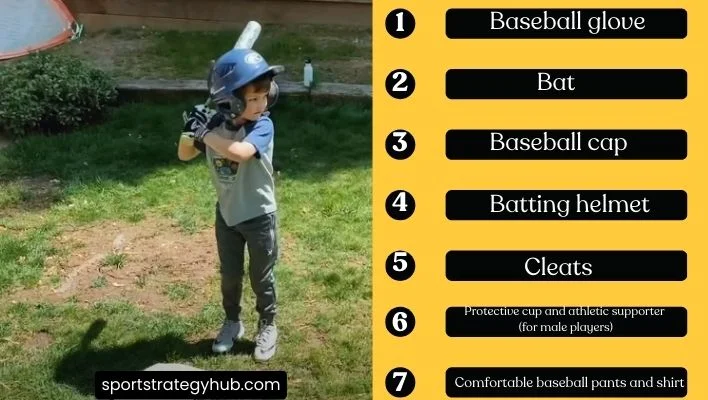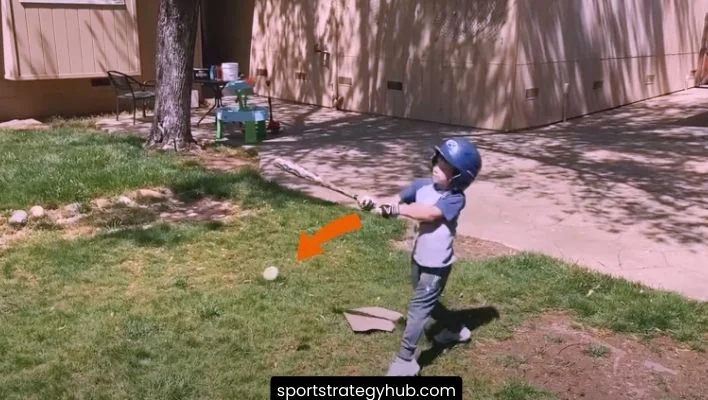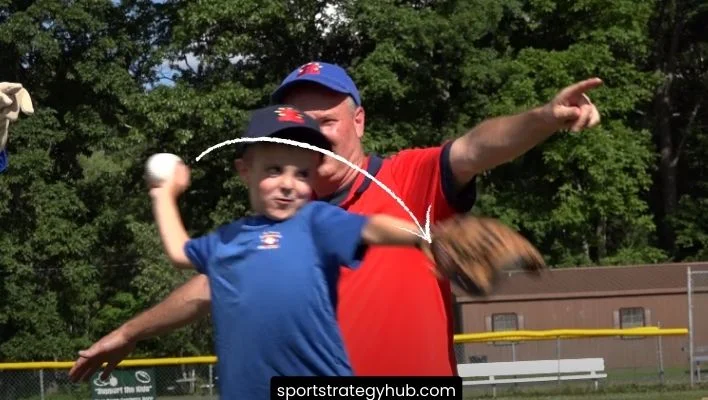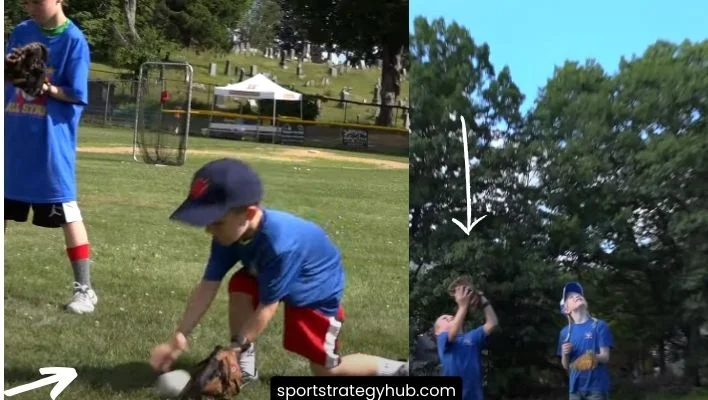How to Play Baseball for Kids: in Steps | Basics | Rules
Starting your child on their baseball journey opens up a world of excitement and learning. Baseball is not just a sport; it’s a way to boost physical activity, highlight the significance of teamwork, and sharpen strategic thinking. This guide is designed specifically with young learners in mind, focusing on “how to play baseball for kids.” We will break down the game’s fundamentals and offer straightforward tips on enhancing batting, catching, and base running skills. Additionally, we’ll provide key advice to make playing both safe and enjoyable for kids. By following this guide, you’ll discover the rewarding experience of teaching kids how to play baseball, ensuring each step is filled with fun and learning.
Baseball Basic Rules For Kids
Understanding the basic rules of baseball is crucial for kids to enjoy the game. Here, in our “how to play baseball for kids” section, we’ll simplify the core rules to make them accessible for young athletes. We’ll cover the objective of the game and the roles of each team. This includes everything your child needs to know to get started. We simplify the rules and focus on the fundamentals to build a solid baseball foundation for your child. This approach will ignite their passion for the sport.
Teaching Children the Basics of Baseball
Are you ready to teach your child the basics of baseball? This section offers guidance on introducing skills like batting, throwing, catching, and base running. The approach is fun, engaging, and suited to your child’s age and abilities. Whether you’re a coach, parent, or enthusiastic supporter, our tips and strategies are here to help. They aim to create a positive and rewarding learning experience for your little slugger.
Basics
Baseball fundamentally involves two teams, each with nine players, competing to score the most runs. In this guide on how to play baseball for kids, we explain that players aim to hit the ball and run across several bases to achieve runs. While one team bats and tries to hit the pitches, the opposing team fields. Their goal is to catch the ball and stop the batters from scoring runs. Understanding the roles of each team, the concept of innings, and the basics of batting, fielding, and base running is crucial. It helps young players enjoy and excel at the game.
Equipment Needed for Kids Baseball
Before your child steps onto the diamond, ensuring they have the necessary equipment is important. This makes the game safe and enjoyable. Here’s a list of essential baseball gear for kids:

- Baseball glove: Choose a properly sized glove that fits comfortably on your child’s hand.
- Bat: Select a lightweight and age-appropriate bat for your child’s size.
- Baseball cap: Protect your child’s eyes from the sun with a comfortable cap.
- Batting helmet: Keep your child’s head safe with a well-fitting helmet.
- Cleats: Provide traction on the field and prevent slip and fall injuries.
- Protective cup and athletic supporter (for male players): Ensure extra safety during play.
- Comfortable baseball pants and shirt: Opt for breathable and flexible clothing to enhance performance.
By investing in the right equipment, you’ll set your child up for success and make their baseball experience more enjoyable.
Batting
Batting is one of the most exciting aspects of baseball. Teaching children the proper technique is crucial for their success at the plate. In this section, we’ll guide you through the essential elements of batting, including proper stance, grip, and swing mechanics. Emphasize the fundamentals and provide age-appropriate drills and exercises. This will help your child develop the skills and confidence to become a capable batter. Prepare to unleash their talent and see them hit a home run!
Innings
Grasping the idea of innings is crucial for young players to comprehend how a baseball game is organized. In this section, we’ll break down the innings system and explain how they shape the flow of the game. From the roles of the offensive and defensive teams to the importance of switching sides, we’ll demystify the inning system and help your child grasp the rhythm of the game. By understanding innings, your child will develop a deeper appreciation for the strategic nature of baseball.
How to Hit the Ball
Hitting the ball is an exhilarating part of playing baseball, especially for kids learning how to play the game. Teaching children the right way to hit is fundamental to their success at the plate. In this ‘how to play baseball for kids’ section, we’ll guide you through a detailed process to ensure your child connects with the ball effectively. We’ll start with the basics of a proper stance and grip, then move on to generating power and ensuring a smooth follow-through. To reinforce these techniques, we’ll introduce fun and engaging practice drills designed to sharpen your child’s hitting skills and boost their confidence.

Running Bases
Base running is an exciting and essential part of baseball. In this section, we’ll guide you through the rules of base running and provide valuable tips to help your child navigate the bases with speed and agility. From rounding the bases to understanding when to steal or tag up, we’ll cover the important aspects of base running. With our strategies and practice drills, your child will become a confident and efficient base runner in no time.
How to Throw the Ball

Throwing the ball is a fundamental skill in baseball, and teaching children the proper techniques is essential for success on the field. Here, we’ll give detailed guidance on how to teach your child the basics of throwing step by step. From proper grip and posture to generating power and accuracy, we’ll cover all the essential elements of a strong throw. With our guidance and practice drills, your child will develop the skills and confidence needed to make accurate and powerful throws.
How to Catch the Ball
Catching the ball is a crucial skill in baseball that requires focus, hand-eye coordination, and proper technique. In this part, we’ll show you the steps to instruct your child in catching the ball. From hand positioning and tracking the ball to using the glove effectively, we’ll cover the essential techniques for safe and successful fielding. With our tips and practice drills, your child will become a reliable and confident fielder in no time.

Precautions to Avoid Injuries
As with any sport, safety is paramount in baseball. In this section, we’ll provide valuable information on precautions you can take to ensure your child’s safety on the baseball field. We’ll cover topics such as wearing protective gear, warming up and stretching, proper hydration, and playing within designated areas. By following these safety guidelines and teaching your child good sportsmanship, you’ll create a safe and enjoyable environment for your young player to develop their skills and love for the game.
How Baseball Is Played
Understanding how a baseball game is played is essential for young players to fully immerse themselves in the sport. In this section, we’ll provide a simplified explanation of the game’s mechanics. From the roles of the fielding and batting teams to the basics of pitching and defensive strategies, we’ll cover all the elements that make baseball an exciting and strategic game. By understanding the game’s mechanics, your child will gain a deeper appreciation for the sport and be better equipped to excel on the field.
Fielding Team
The fielding team plays a crucial role in baseball, and understanding their responsibilities is essential for young players. In this section, we’ll delve into the various positions on the field and highlight the key responsibilities of each player. We’ll explore how teamwork, communication, and defensive tactics can make your child a confident and skilled fielder. By mastering the art of fielding, your young player will contribute to the team’s success and enjoy the game to the fullest.
The Batting Team
The batting team in baseball aims to score runs and put pressure on the fielding team. In this section, we’ll explore the objectives and strategies of the batting team. We’ll cover topics such as reading the pitcher, choosing the right pitches to swing at, and executing effective base running strategies. By understanding the goals and tactics of the batting team, your child will become a more strategic and impactful player at the plate.
Pitching
Pitching is a critical aspect of baseball, and teaching children the basics of pitching is essential for their overall development as players. In this section, we’ll guide you through the fundamentals of pitching, including grip, stance, and delivery. We’ll also discuss age-appropriate pitches and provide tips for improving accuracy and velocity.Through our tips and training exercises, your child will gain the abilities and assurance to stand out as a pitcher.
Baseball Terms
Baseball has its own unique language, and familiarizing kids with the sport’s terminology is essential for their understanding and enjoyment of the game. In this section, we’ll introduce a selection of basic baseball terms, from “home plate” and “inning” to “strikeout” and “double play.” By learning these terms, your child will feel more confident and engaged while participating in baseball activities and watching games. Let’s dive into the world of baseball lingo and expand your child’s baseball vocabulary!
Interesting Facts About Baseball
- Baseball, which started in the United States in the early 1800s, swiftly earned the title of America’s favorite sport.
- The National League, the inaugural professional baseball league, was established in 1876.
- The Baseball Hall of Fame, situated in Cooperstown, New York, celebrates the most outstanding players, managers, and contributors to the sport.
- Babe Ruth, famously called the “Great Bambino,” stands as a legendary figure in the history of baseball.
- The World Series, Major League Baseball’s championship series, has been an annual event since 1903.
- Baseball has inspired numerous movies, books, and songs, becoming ingrained in popular culture.
These interesting facts will pique your child’s curiosity and deepen their appreciation for the rich history and cultural significance of baseball.
FAQs
Kids can begin playing baseball at the age of 4 or 5, based on their physical growth and enthusiasm for the game.
Yes, children can play baseball informally with friends and family in the backyard or at local parks. Joining a league offers more structured play and opportunities for development.
To start learning baseball, familiarize yourself with the basic rules, practice fundamental skills like throwing and catching, and consider joining a local youth baseball program or taking lessons.
Conclusion
Now that you have a comprehensive understanding of how to play baseball for kids, it’s time to step up to the plate and start enjoying this fantastic sport! Remember, baseball is all about having fun, developing skills, and fostering teamwork. Whether your child dreams of becoming a professional player or simply wants to have a good time with friends, the joy and camaraderie of baseball are waiting. So grab a glove, swing a bat, and let the games begin!
